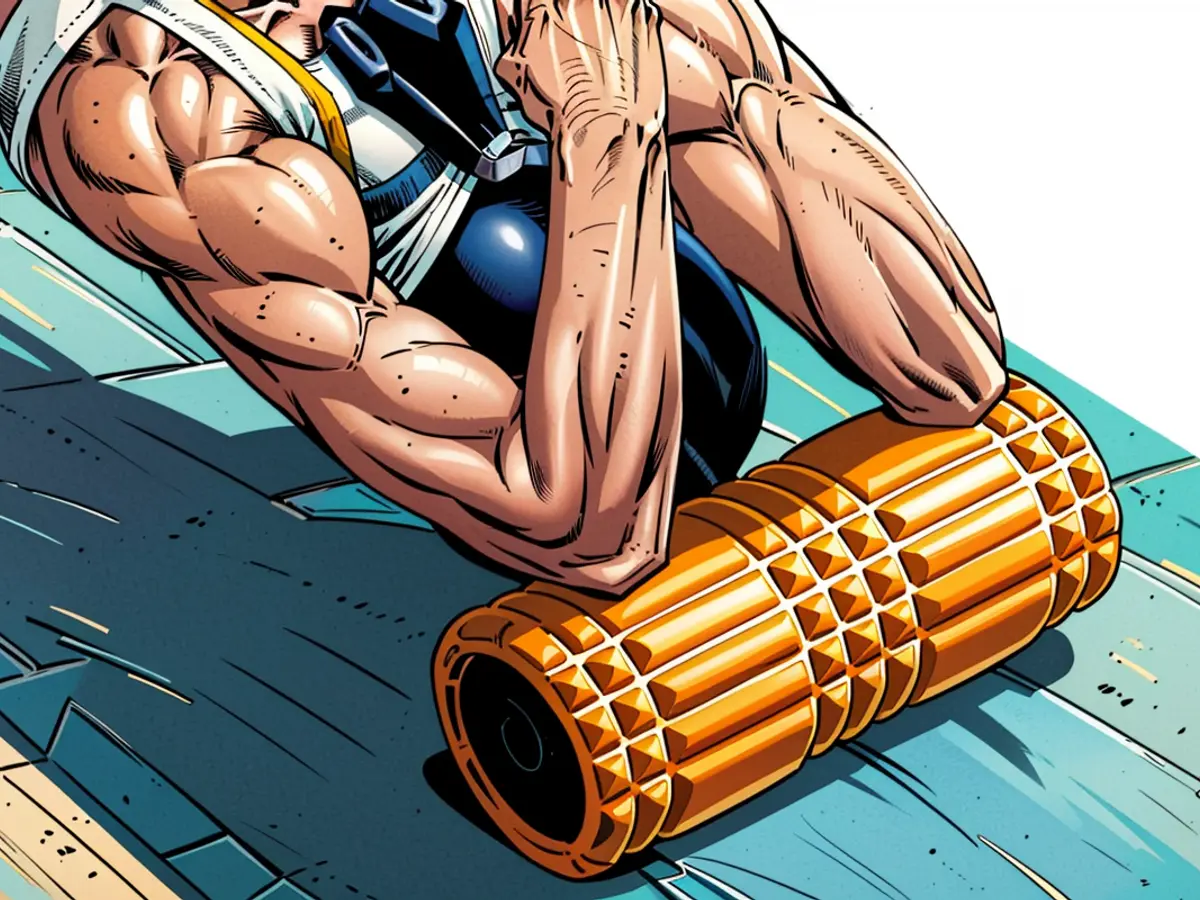The Best Stretches for Your Shoulders
Shoulder mobility is important: without it, you might have trouble reaching overhead, or performing some of your favorite upper body exercises. As you get older, limited shoulder mobility can even affect how you walk, since we need to swing our arms and we need to be able to carry and do things while we’re walking. So let’s look at some of the best exercises to get more flexibility in our shoulders.
Along with flexibility, shoulder strength is also important. I have some recommendations here for my favorite shoulder strengthening exercises, so make sure to check those out as well. Now, on to the stretches.
Butcher’s block stretch
This is a great stretch for your lats (latissimus dorsi), the muscles that run down the sides of your back, below your armpits. When these muscles are tight, it’s hard to reach overhead, making it difficult to get things from high shelves or, in the gym, to press a barbell overhead. Flexibility in your lats is also helpful to do exercises like power cleans and front squats.
To do the butcher’s block stretch, you’ll need some kind of box, table, or bench, and ideally you’ll also have a stick (something light, like a broomstick) to hold. If you don’t have a stick, use a towel, a resistance band, or just pretend you’re holding an imaginary stick. Put your elbows on the box, palms facing up, and tuck your head down between your arms as shown in the video.
If you don’t have a block and a stick, and would prefer something you can do without equipment, try an overhead triceps stretch. Shrugging your shoulder upward while performing this movement can help you to get a stretch in your lats as well as your triceps.
Doorway stretch
This is a quick and easy way to stretch your pecs (pectoral muscles). These are your chest muscles, the same ones you work in a bench press. Since they have an attachment point on the upper arms, tight pecs can inhibit your shoulder movement. So put your elbows on either side of a door frame, and gently lean into the doorway to stretch your pecs and the front of your shoulders. If you don’t have a doorway that’s exactly the right width, you can do this stretch one side at a time.
Thread the needle
This stretch targets the upper back, and is sometimes described as being a stretch for your “thoracic spine” (referring to the part of your backbone that is in your upper back). To do it, start on your hands and knees, and pass your right arm through the space between your left hand and left knee. Try to keep your hips in the same position as they were when you were on all fours, while turning your upper body to let your shoulder get as close as possible to the ground.
PVC pass through
A quick and easy stretch you can do in the gym is the PVC pass through, also sometimes known by the grisly term “shoulder dislocates.” (Don’t worry, you are not actually dislocating your shoulders.)
A “PVC pipe” is just a thin, lightweight rod, named after the type of plastic it’s made of. You can go buy a length of PVC pipe from Home Depot for a couple bucks, or use something like a broomstick or lightweight training bar. It also works pretty well to use a resistance band or towel; just pull gently on it to keep the band or towel taut.
Start with your hands on the stick, wide apart, and raise the bar over your head. Ideally you’ll be able to pass the bar over your head and behind your back, then bring it back to the starting position. The wider your hands are, the easier this will be. Each rep will be a little easier than the one before, and you can bring your hands in for a narrower grip if you like.
Performing the PVC pass through exercise can also benefit your shoulder mobility, as it helps to loosen up the shoulder joint. Additionally, incorporating the best shoulder stretches, such as the butcher's block stretch and the doorway stretch, into your routine can significantly improve your overall shoulder health and flexibility.








